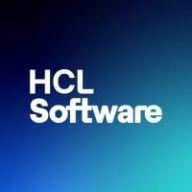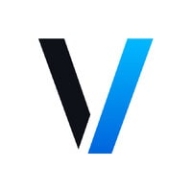

HCL AppScan and Veracode are competing tools in the security software market. Veracode often has the upper hand due to its superior features and customer service, despite HCL AppScan's more favorable pricing.
Features: HCL AppScan offers comprehensive security testing capabilities, integration with development tools, and effectiveness in identifying vulnerabilities. Veracode stands out with a robust cloud-based platform, detailed reporting features, and the ability to easily pinpoint issues.
Room for Improvement: HCL AppScan users suggest improved documentation, usability enhancements, and faster customer service responses. Veracode could improve its scan speed, integration flexibility, and deployment complexity.
Ease of Deployment and Customer Service: HCL AppScan is straightforward to deploy but has occasional lapses in customer service responsiveness. Veracode is praised for exceptional customer support, though its deployment process can be complex.
Pricing and ROI: HCL AppScan has an advantageous pricing structure and satisfactory ROI. Veracode is considered costlier, yet users believe its pricing is justified by the security benefits and comprehensive value offered.
The scanners of Veracode bring status of the weaknesses in the current infrastructure. It scans and provides reports regarding the servers, the network, and the applications running on those servers.
Regarding price, the evaluation should focus on how efficiently they will recover their investment, considering the time saved through the use of Veracode Fix, for example, and the ability to fix code at dev time compared to the problems faced when fixing after the product is already deployed.
Veracode provides excellent assistance and regularly scheduled calls to address customer concerns and updates.
Access to the engineering team is crucial for faster feedback on the product fix process.
I have communicated with the technical support of Veracode a couple of times, and this was a really great experience because these professionals know their material.
They share detailed information via email, including screenshots or further clarification about the issue.
Cloud solutions are easier to scale than on-premise solutions.
It has a good capacity to scale effectively.
Implementing these features into our normal CI/CD was good, so I can say that scalability is really good.
If the Veracode server is down, we experience many issues during the scan.
It's not that easy to onboard, but once they have been onboarded on the platform, and the pipeline configured alongside the product configured, it works effectively.
If it could be integrated directly with code repositories such as Bitbucket or GitHub, without the need to create a pipeline to upload and decode code, it would simplify the code scan process significantly.
We had issues with scanning large applications. Scanning took a lot of time, so we kept it outside the DevOps pipeline to avoid delaying deployments.
A nice addition would be if it could be extended for scenarios with custom cleansers.
Companies often choose based on budget constraints, with Veracode being on the higher end cost-wise.
It's not the most expensive solution.
Overall, Veracode's pricing is lower and more scalable than many alternatives in the market.
If there's a security gap, you'll never know the cost or effect.
AppScan's most valuable features include its ability to identify vulnerabilities accurately, provide detailed remediation steps, and the newly introduced AI-powered features that enhance its functionality further.
It offers confidence by preventing exposure to vulnerabilities and helps ensure that we are not deploying vulnerable code into production.
The best features in Veracode include static analysis and the early detection of vulnerable libraries; it integrates with tools such as Jenkins.
It fixes issues directly in the IDE while you're doing it.
| Product | Market Share (%) |
|---|---|
| Veracode | 7.7% |
| HCL AppScan | 2.5% |
| Other | 89.8% |


| Company Size | Count |
|---|---|
| Small Business | 13 |
| Midsize Enterprise | 6 |
| Large Enterprise | 31 |
| Company Size | Count |
|---|---|
| Small Business | 69 |
| Midsize Enterprise | 43 |
| Large Enterprise | 112 |
IBM Security AppScan enhances web application security and mobile application security, improves application security program management and strengthens regulatory compliance. By scanning your web and mobile applications prior to deployment, AppScan enables you to identify security vulnerabilities and generate reports and fix recommendations.
Veracode is a leading provider of application security solutions, offering tools to identify, mitigate, and prevent vulnerabilities across the software development lifecycle. Its cloud-based platform integrates security into DevOps workflows, helping organizations ensure that their code remains secure and compliant with industry standards.
Veracode supports multiple application security testing types, including static analysis (SAST), dynamic analysis (DAST), software composition analysis (SCA), and manual penetration testing. These tools are designed to help developers detect vulnerabilities early in development while maintaining speed in deployment. Veracode also emphasizes scalability, offering features for enterprises that manage a large number of applications across different teams. Its robust reporting and analytics capabilities allow organizations to continuously monitor their security posture and track progress toward remediation.
What are the key features of Veracode?
What benefits should users consider in Veracode reviews?
Veracode is widely adopted in industries like finance, healthcare, and government, where compliance and security are critical. It helps these organizations maintain strict security standards while enabling rapid development through its integration with Agile and DevOps methodologies.
Veracode helps businesses secure their applications efficiently, ensuring they can deliver safe and compliant software at scale.
We monitor all Application Security Tools reviews to prevent fraudulent reviews and keep review quality high. We do not post reviews by company employees or direct competitors. We validate each review for authenticity via cross-reference with LinkedIn, and personal follow-up with the reviewer when necessary.